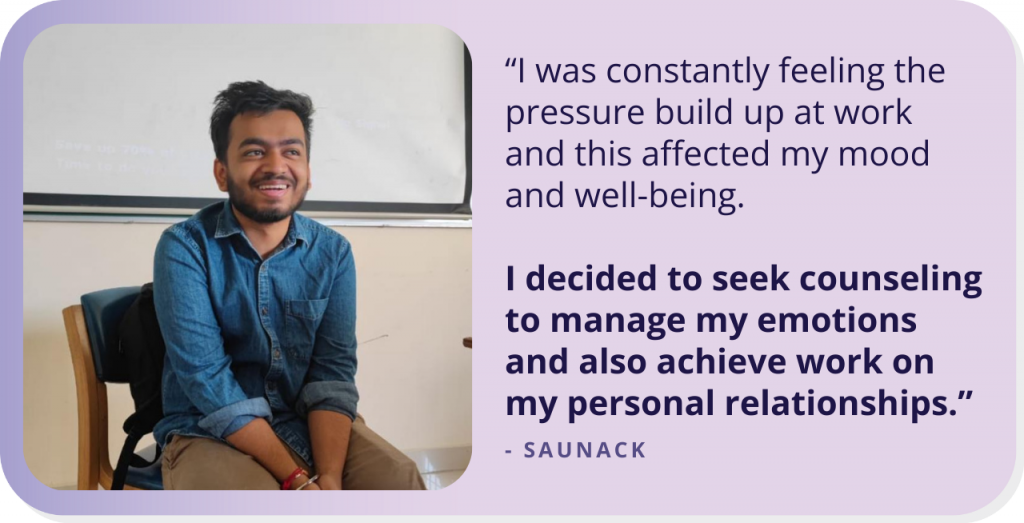
‘It’s Ok to Fail’ and 4 Other Lessons From Entrepreneurs for Professional Success
“Success seems to be connected with action.
Successful people keep moving. They make mistakes, but they don’t quit.”
~ Conrad Hilton, Founder, Hilton Hotels Chain
Success can mean different things for different people. There isn’t really a single concrete definition for it. But is there a single set path that all of us can follow in our lives to guarantee whatever success means for us? We asked some accomplished entrepreneurs this very question. All of them that had one answer, a big resounding “No”. But is that it? Is success all about figuring it all out on our own with no clear direction, or with no way to to find that direction? That would be a “No” too. All the entrepreneurs we spoke with agreed that there are certain practices which if followed properly and consistently, will certainly set you on the right path to your success. Here’s more:
1. It’s Ok to Fail

Failure can be quite a painful experience literally. Studies show that when we experience failure, it activates the same areas of our brains that are triggered by physical pain. In other words, it’s a really unpleasant experience. But to fail is human. It’s impossible for us to get through life without tasting failure quite a few times. When it comes to achieving success, it matters how we react to failure.
According to a 2019 study conducted at Kellogg School of Management, t people who continue after experiencing setbacks early in their professional lives are more likely to succeed later on in their careers and also exceed those who had early achievements. Which goes to prove that learning from your failures and assessing your mistakes can take you a long way.
Most overnight success you witness in the media is the result of a lot of hard work and perseverance. Make sure you prepare yourself for the long haul rather than for a short-stint because there will be failures no matter what – Sachin Bhatia, CEO of Ameo
2. Networking is Key

“Networking” has become quite a cliché in conversations about professional growth. But is it really that effective? Well, according to a 2020 study by LinkedIn, not having a strong network makes it harder for Indian working professionals to find a job that allows them to utilise their skills. The benefits of networking include understanding the job market and the support you receive from your network can help you during trying times.
According to Forbes, Networking can provide you with an avenue for new opportunities, improves your status and self-confidence and helps you get noticed among your networking circle along with other opportunities. This goes to show that having a strong networking circle is essential to furthering your career.
It is very important to meet the right people, share your ideas with them. Find investors, partners and employees. If you start networking early and get the right set of stakeholders, then your chances of scaling up are very high – Vineet Patawari, CEO of elearnmarkets.
3. Power of Accountability

Accountability is a powerful tool to enhance motivation. Making a commitment to do something and then holding oneself accountable to others is one of the most useful tools for productivity. If you are trying to do something that requires consistent effort (as most things do) and you are struggling with finding the motivation to keep going, consider shifting your environment to increase your accountability.
The American Society of Training and Development (ASTD) conducted a study to understand the power of accountability on goal setting. It showed that 65% of the participants completed the task after asking someone to hold them accountable and about 95% of the participants met their goals when they attended a specific appointment with their accountability partner to discuss their progress.
When you combine the notion of accountability with the objective of accomplishing better results, you create an empowering and guiding beacon for both personal and organizational activity – The Oz Principle
4. Seek Mentorship

There’s no denying that the Internet and books are as irreplaceable as sources of knowledge. Neither is experience. But another precious source of knowledge that complements these is working and networking with professionals. Not only will it help expand your knowledge in your field of interest, but even more importantly, it will help you explore new areas of interest that you may have been unaware of. Meeting the right people, sharing your ideas and gaining their insight is an invaluable opportunity to help you broaden your perspective.
Sounds too good to be true? Well, this is supported by research too. A study conducted on the impact of mentoring on career development shows that “mentoring relationships offer new perspectives and frameworks, suggesting exciting avenues for future career development.” This goes to show that seeking mentorship can help you gain access to new information that can help you out in your future career.
Most of the time, people tend to be extremely confident in themselves and as a result, they don’t value the experience of mentors. Even now when I want advice I go to my dad. He may not have any online experience, but he definitely had other valuable experiences which he can share with me, and I don’t see a lot of young people approaching mentors these days, this is something that they need to be doing – Arjun Vaidya, CEO of Dr Vaidya.
5. Work on your Problem-Solving Skills.
At the workplace, we may be faced with various challenges. Developing and sharpening your problem-solving skills is essential because depending on your co-workers and other people around you is not feasible in the long run. Taking part in responsibilities that require problem-solving to provide long term learning opportunities in the workplace.
The latest World Economic Forum (WEF) Future of Jobs Report also highlights one of the top necessary soft skills for employment to be Complex Problem Solving.
When solving a problem, you tend to go deep into it, but you also need to give yourself some time to see your problems from a bigger perspective. You need to manage your own outlook and gain a sense of control over yourself and your surroundings. What I do normally to distance myself from the problem and look at it from a bigger perspective – Sachin Tyagi, CEO of Opotax.
So there you have it, 5 research-backed pieces of advice that would always keep you moving on the path to success.
As working professionals, we may tend to negate the power of learning new things… But without learning, there’s no growth. That’s where we come in. If you’re looking to grow and become a better version of yourself, connect with a YourDOST Expert today.






